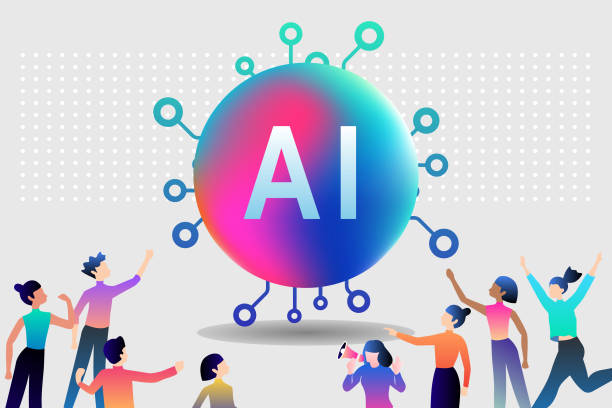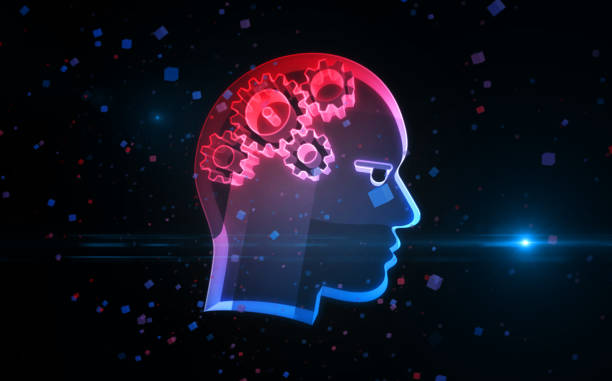What is an AI Assistant and What are its Applications?
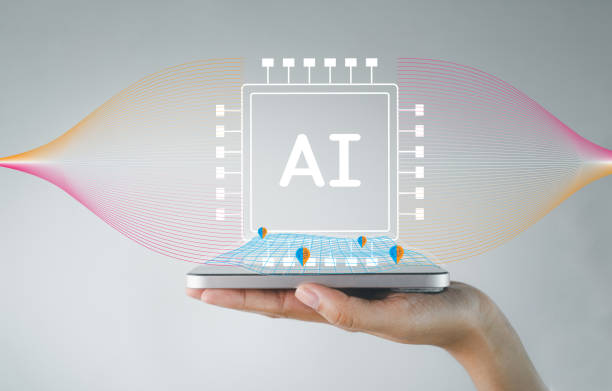
What is an AI Assistant and What are its Applications?
An #AI_Assistant (AI Assistant) is a software or computer system designed using Artificial Intelligence (AI) to help users with various tasks.
These tasks can include answering questions, providing information, performing calculations, time management, scheduling, and even content creation.
The main goal of an AI assistant is to increase productivity and ease of task execution for users.
These tools use machine learning algorithms, Natural Language Processing (NLP), and other AI techniques to understand and respond to user requests.
A smart assistant can exist as a mobile application, a desktop program, or even as part of a smart device such as smart speakers (like Google Home or Amazon Echo).
AI assistants are playing an increasingly important role in our daily and professional lives, and can help us with time management, task reminders, providing necessary information, and even in decision-making.
With ongoing advancements in AI, smart assistants are expected to become increasingly powerful and intelligent, playing a more significant role in our lives.
These tools not only help us perform tasks faster and easier, but can also assist us in learning, creativity, and connecting with others.
Losing potential customers due to an unprofessional website? Rasaweb is your answer! With our specialized corporate website design services:
✅ Enhance your business’s credibility and standing
✅ Experience more targeted customer acquisition
⚡ Act now for a free consultation!
Types of AI Assistants: Introduction and Comparison
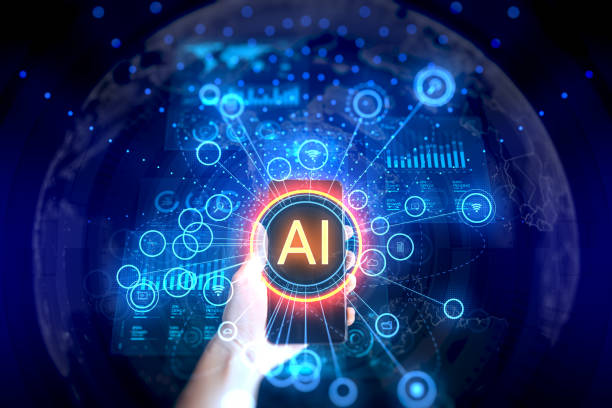
Types of AI Assistants: Introduction and Comparison
AI assistants can be categorized based on various criteria, including the type of tasks they perform, the platform they run on, and the AI technologies they utilize.
Here are some of the most common types of AI assistants:
- Voice Assistants These smart assistants interact with users via voice.
Famous examples include Google Assistant, Amazon Alexa, and Apple Siri. - Text-Based Assistants These smart assistants interact with users via text.
They can exist as chatbots on websites and applications, or as part of a customer support system. - Virtual Assistants These smart assistants can offer a combination of voice and text capabilities.
They can help users with various tasks, including scheduling, email management, and online shopping. - Generative AI Assistants These smart assistants can generate new content, including text, images, and code.
ChatGPT and Bard are examples of this type of assistant.
Comparison
Each of these assistants has its own advantages and disadvantages.
Voice assistants are very suitable for simple and quick tasks, such as playing music or setting reminders.
Text-based assistants are more appropriate for providing customer support and answering complex questions.
Virtual assistants can offer a combination of voice and text capabilities, and generative AI assistants are suitable for content creation and creative tasks.
How to Use AI Assistants in Daily Life
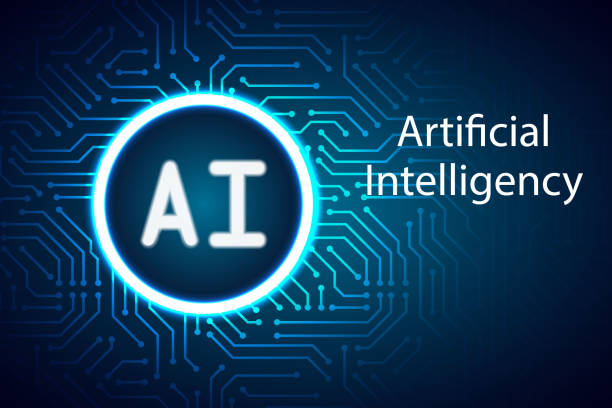
How to Use AI Assistants in Daily Life
AI assistants can help you in various aspects of daily life:
- Time Management and Planning Smart assistants can help you set reminders, schedule meetings, and manage to-do lists.
- Information Retrieval You can use an AI assistant to find information on various topics, including news, weather, and sports scores.
- Online Shopping Smart assistants can help you find desired products, compare prices, and make online purchases.
- Entertainment You can use an AI assistant to play music, podcasts, and audiobooks.
- Learning Smart assistants can help you learn new languages, study lessons, and find educational resources.
| Feature | Advantages | Disadvantages |
|---|---|---|
| Time Management | Increased Productivity | Requires precise planning |
| Information Retrieval | Quick access to information | Possibility of incorrect information |
| Shopping | Ease of online shopping | Security concerns |
Improving Life with AI Assistants
By using an AI assistant, you can improve your life and save time and energy.
A smart assistant can help you with daily tasks and allow you to focus on more important work.
Choosing the Best AI Assistant for Your Needs
![]()
Choosing the Best AI Assistant for Your Needs
Choosing the best smart assistant depends on your needs and preferences.
To choose the best assistant, you should consider the following:
- Type of tasks you want the assistant to perform If you are looking for an assistant to help you with time management and scheduling, you should choose a virtual or voice assistant.
If you are looking for an assistant to help you with content creation, you should choose a generative AI assistant. - Platform you want the assistant to run on Some smart assistants run on mobile, some on desktop, and others on smart devices like speakers.
- Budget Some smart assistants are free, while others require a subscription.
- Privacy Before using a smart assistant, you should read its privacy policy.
Review Features and Capabilities
When choosing a smart assistant, examine its features and capabilities.
Make sure the desired assistant has the functionalities you need.
Also, read other users’ reviews about the smart assistant to ensure its quality and performance.
By considering these factors, you can choose the best smart assistant for yourself and benefit from its advantages.
Did you know that poor online store design can drive away up to 70% of your potential customers? Rasaweb transforms your sales with professional and user-friendly e-commerce website designs.
✅ Significant increase in sales and revenue
✅ Full optimization for search engines and mobile
⚡ [Get a free consultation from Rasaweb]
The Future of AI Assistants: Progress and Challenges
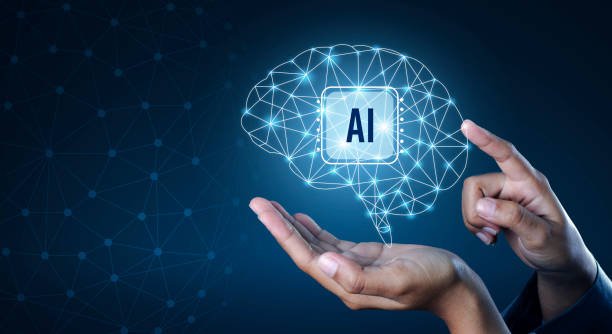
The Future of AI Assistants: Progress and Challenges
The future of AI assistants is very bright and promising.
With ongoing advancements in AI, smart assistants are expected to become increasingly powerful and intelligent.
In the future, AI assistants will be able to perform more complex tasks, answer questions with greater accuracy, and interact more effectively with users.
In the future, smart assistants will not only help us with daily tasks but also assist us in learning, creativity, and connecting with others.
Challenges
Despite significant advancements in AI assistants, there are also challenges that need to be addressed.
One of the most important challenges is maintaining user privacy.
Smart assistants collect a lot of information about users, and it must be ensured that this information is properly protected.
Another challenge is the biases present in AI algorithms.
If AI algorithms are trained on biased data, they may make incorrect decisions.
To address these challenges, more research needs to be done on ethical and responsible AI.
The Key Role of AI Assistants in the Future
Overall, the future of AI assistants is very bright and promising.
These tools have the potential to improve our lives and help us with various tasks.
By addressing the existing challenges, we can fully benefit from smart assistants and witness major transformations in our daily lives.
The future belongs to smart assistants.
Privacy and Security in Using AI Assistants

Privacy and Security in Using AI Assistants
Privacy and security are two important issues in using smart assistants.
AI assistants collect a lot of information about users, including personal information, financial information, and information related to online activities.
This information can be misused if not protected.
Protecting Privacy
To protect your privacy when using a smart assistant, you should take the following steps:
- Read the smart assistant’s privacy policy.
- Review the smart assistant’s privacy settings and configure them to collect only essential information.
- Avoid sharing sensitive personal information with your smart assistant.
- Regularly review your smart assistant’s activity history and delete information you don’t want stored.
Ensuring Security
To ensure your security when using a smart assistant, you should take the following steps:
- Use a strong password for your user account.
- Enable two-factor authentication.
- Keep your smart assistant software up to date.
- Avoid using insecure public Wi-Fi networks.
- Be wary of phishing attacks.
Conscious Use of AI Assistants
By following these tips, you can use your smart assistant safely and responsibly and benefit from its advantages.
Using a smart assistant can make your life easier and more efficient, but you must also pay attention to your privacy and security.
AI Assistants in Education and Learning

AI Assistants in Education and Learning
AI assistants can play a significant role in education and learning.
These tools can help students in learning new concepts, completing assignments, and preparing for exams.
Smart assistants can help teachers and professors in providing personalized education, evaluating student performance, and managing classrooms.
AI assistants are powerful tools that can improve the education and learning process and help students and teachers achieve their goals.
Smart assistants can help students learn independently and develop their critical thinking skills.
Benefits of Using Smart Assistants in Education
- Personalized Learning Smart assistants can help students learn at their own pace and focus on concepts they struggle with.
- Access to Information Smart assistants can provide students with quick and easy access to the information they need.
- Assignment Completion Smart assistants can help students with assignments and projects.
- Exam Preparation Smart assistants can help students prepare for exams.
| Tool | Application in Education |
|---|---|
| ChatGPT | Generating educational content, answering questions |
| Google Assistant | Assignment reminders, information search |
AI Assistants Serving Education
Smart assistants can help teachers provide personalized instruction and evaluate student performance.
By using AI assistants, teachers can communicate more effectively with their students and help them in learning.
AI Assistants in Business and Commerce
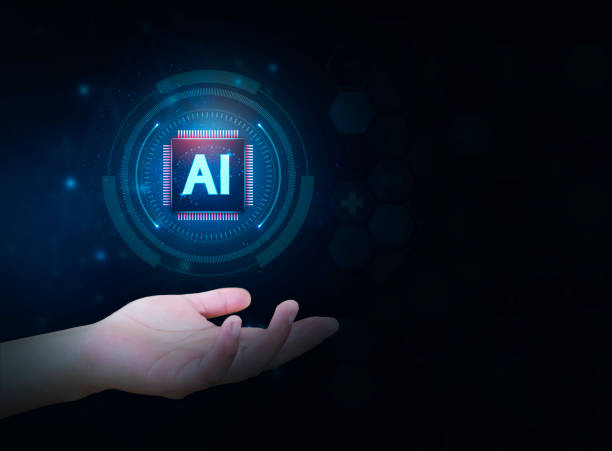
AI Assistants in Business and Commerce
AI assistants can play a significant role in business and commerce.
These tools can help companies increase productivity, reduce costs, and improve customer experience.
Smart assistants can help employees with daily tasks, such as answering emails, scheduling meetings, and managing projects.
AI assistants can help managers with strategic decisions, such as data analysis, market trend prediction, and identifying new opportunities.
Smart assistants are powerful tools that can help companies compete in the global market.
By automating processes, increasing accuracy, and providing valuable insights, AI assistants help companies save time and money and make better decisions.
Applications of Smart Assistants in Business
- Customer Support Smart assistants can answer customer questions and resolve their issues.
- Marketing and Sales Smart assistants can help companies attract new customers and increase sales.
- Human Resource Management Smart assistants can help companies recruit new employees and manage their performance.
- Data Analysis Smart assistants can help companies analyze data and identify new opportunities.
Increasing Productivity with AI Assistants
By automating repetitive tasks and providing necessary information, smart assistants help employees focus on more important work and increase their productivity.
By using AI assistants, companies can communicate more effectively with their customers and improve their experience.
nCompanies can improve their performance and succeed in today’s competitive market by using smart assistants.
Is your e-commerce site ready to attract maximum customers and boost sales? Rasaweb revolutionizes your online business with modern and efficient e-commerce website designs.
✅ Increased speed and improved SEO
✅ Excellent user experience on mobile and desktop⚡ Get a free e-commerce website design consultation from Rasaweb!
AI Assistants and Their Impact on the Job Market

AI Assistants and Their Impact on the Job Market
The impact of AI assistants on the job market is a complex and multifaceted issue.
On one hand, smart assistants can automate some jobs, leading to job loss.
On the other hand, smart assistants can create new jobs and help employees learn new skills.
AI assistants have the potential to fundamentally change the job market, but their exact impact is still unclear.
AI assistants help employees perform their tasks more effectively and focus on more creative work.
Positive Impacts
- Creation of New Jobs Smart assistants can create new jobs in the development, implementation, and maintenance of AI systems.
- Increased Productivity Smart assistants can help employees perform their tasks more effectively.
- Creation of Learning Opportunities Smart assistants can help employees learn new skills.
Negative Impacts
- Job Loss Smart assistants can automate some jobs, leading to job loss.
- Inequality The benefits of smart assistants may be unequally distributed, leading to increased inequality in society.
Preparing for Job Market Changes
To prepare for job market changes brought about by smart assistants, you need to learn new skills and adapt to new technologies.
Additionally, you should support government policies and training programs that help employees learn new skills.
AI assistants can have both positive and negative impacts on the job market.
By taking the right approach, we can benefit from AI assistants and prevent their negative impacts.
Important Considerations in Developing and Designing an AI Assistant
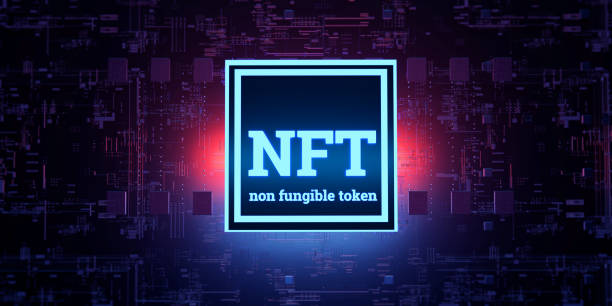
Important Considerations in Developing and Designing an AI Assistant
Developing and designing a successful AI assistant requires attention to various points.
Here are some of the most important considerations:
- Precise Goal Definition Before starting development, you must precisely define the smart assistant’s goal and application.
- Choosing the Right Technology You must choose the appropriate AI technologies for your assistant.
- Collecting Training Data To train your smart assistant, you must collect appropriate training data.
- Designing a Suitable User Interface The smart assistant’s user interface must be user-friendly and easy to use.
- Testing and Evaluation After development, you must test and evaluate your smart assistant and resolve its issues.
Characteristics of a Good AI Assistant
- High accuracy
- Fast performance
- Learning capability
- Customization capability
- High security
Principled Development of Smart Assistants
By observing these points, you can develop a successful AI assistant and benefit from its advantages.
Developing and designing an AI assistant is a complex process, but with careful planning and the use of appropriate technologies, you can create a powerful and useful tool.
Frequently Asked Questions
| No. | Question | Answer |
|---|---|---|
| 1 | What is an AI assistant? | An AI assistant is a software program that uses artificial intelligence to help users perform various tasks, provide information, or automate processes. |
| 2 | What are some examples of AI assistants? | Well-known examples include Siri, Google Assistant, Alexa, and Cortana. |
| 3 | How does an AI assistant work? | AI assistants typically use Natural Language Processing (NLP) to understand a user’s voice or text commands and machine learning to improve their performance. |
| 4 | What capabilities does it have? | Capabilities include answering questions, setting reminders, playing music, sending messages, controlling smart devices, and providing weather information. |
| 5 | How is data security handled in AI assistants? | Data security is a major concern. Companies strive to protect user data using encryption and privacy policies, but users should always be aware of potential risks. |
| 6 | Can AI assistants understand emotions? | Currently, AI assistants cannot understand real emotions, but they can detect tone and words associated with emotions and provide appropriate responses. |
| 7 | What are the applications of AI assistants in the workplace? | In the workplace, they can be used for scheduling meetings, managing emails, searching for information, and even assisting with drafting documents. |
| 8 | What will be the future of AI assistants? | In the future, they are expected to be smarter, more personalized, and have more capabilities, actively anticipating user needs and even assisting with complex decision-making. |
| 9 | What is the difference between an AI assistant and a chatbot? | An AI assistant typically has a wider range of capabilities and interactions (often voice-based), whereas chatbots usually focus on specific tasks within a text-based platform. |
| 10 | How can one best use an AI assistant? | For optimal use, one should become familiar with its voice commands and capabilities, synchronize it with other devices, and allow it to learn your usage patterns through interactions. |
And other advertising services by Rasa Web advertising agency
- Smart UI/UX: An innovative service to increase customer acquisition through SEO-driven content strategy.
- Smart Social Media: Designed for businesses seeking online growth through SEO-driven content strategy.
- Smart Website Development: A fast and efficient solution for increasing website traffic with a focus on intelligent data analysis.
- Smart Reportage: An innovative service to boost sales through custom programming.
- Smart Reportage: An effective tool for campaign management with the help of an SEO-driven content strategy.
And over hundreds of other services in internet advertising, advertising consultation, and organizational solutions
Internet Advertising | Advertising Strategy | Advertorial
Sources
Complete Guide to AI Assistants
Practical Applications of AI in Daily Life
Introduction and Comparison of Smart Assistant Types
The Future of AI and Digital Transformation in Businesses
? For a powerful online presence and to make your business visible, Rasaweb Afarin is with you, offering comprehensive digital marketing services, including professional WordPress website design.
📍 Tehran, Mirdamad Street, next to Central Bank, Southern Kazeroun Alley, Ramin Alley, No. 6

